Away Game: Ostuni, Italy
On the ground, slowing it down in Puglia
Away Game is a format that showcases journeys as they unfold. Live dispatches from unfamiliar places. Notes, stories, and reflections on the thrill of discovery. Mostly photos, with some shorter-form writing intertwined.
Away Game: Ostuni, Italy
Forno 31 is perched at the top of a massive hill in Ostuni. It’s a worthy hike.
Like any great bakery, the centerpiece — the heart of the operation — is its oven. Forno 31’s oven is wood-burning, structured with brick, with strong steel doors. It dates back to the 15th (!!) century.
Paolo is in charge at Forno — he is a certified beauty. A proud baker with a soft smile. His bakes are rustic and perfect. He puts that oven to work — bread, tarilli, focaccia, panzerotti, faggotini, pasticciotti.
I quickly recognized that Puglia has an unlimited amount to be discovered. It’s slightly overwhelming — hundreds of small towns, each with a slightly different feel. Add in the coasts and beaches. It’s ground you couldn’t cover in a lifetime, let alone a 3-week trip.
When I travel, I usually find myself with an irresistible desire to explore — to see as much of a place as possible. But in Puglia, that desire never set in. Here, casting a wider net doesn’t necessarily mean you’ll have a greater catch. Going faster doesn’t ensure you’ll get there first. In Puglia, the magic exists when you go deeper — when you slow it down.
Perhaps surprisingly, what I’m enjoying the most about this part of Italy isn’t the restaurants, bakeries, or anything food-related.
It’s the people — the farmers, makers, artists, Italians — who have been perfecting their crafts in the lesser-traveled parts of Italy for years, humble but immensely proud about what they’re doing. It’s the towns — some of which are unassuming at first glance, but reveal themselves to be quite special. It’s the beauty of the monotony — grocery shopping at open-air markets, gas station attendants carefully wiping down your windshield, kicking around a soccer ball in the town square. There’s a realness in Puglia that I struggled to find in Rome or Florence. Not to say those cities aren’t magical in their own ways. But the simple, slow, real life in Puglia is warm, inviting, and a privilege to be around.
I met another Paolo a few moments after stepping into Martina Franca, a town with a peaceful, breezy energy that was a welcome change of pace from a few cities overrun with tourism. It’s about 35 minutes southwest of Ostuni. Martina Franca is clean, green, and effortlessly charming. Most importantly, no one was trying to sell you junk, which is the only thing worse than tourism itself.
Paolo was an older Italian man, well-dressed and carrying a calm demeanor. He saw me taking pictures and called me over. In broken English, he told me, “I have something good for you to photo; only 20 euros.” I shrugged it off and kept moving, thinking it was a scam. But Paolo insisted, clarifying, “Money, I only kid. Come.”
Paolo walked me to the front door of his house, turned the key, and gestured at me to go inside.
Needless to say, the guy had something good for me to photo. Excellent showing from Italian men named Paolo.
When it comes to food, the quality of the produce has been far more impressive than the skillsets and techniques of the cooks. It’s not a slight to the chefs and restaurants in the region, but a testament to how good and how fresh the produce is. Respectfully, all they have to do is not fuck it up. The best meals have been the simplest. The disappointing ones have been doing too much.
Tomatoes, zucchini, peppers, eggplant, lettuce, almonds, strawberries, peaches, mulberries! Everything is vibrant and flavorful. There’s a bustling pescaria slinging fresh seafood in every city. Caseificos, or cheese shops on most corners. Bakeries on all the rest. Puglia is home to the producers. And their products are sensational, unbeatable.
The grocery stores are loaded with quality goods — an abundance of veg, fresh pasta on shelves, and salumeria counters. But the best place to stock up is the open-air markets. The row of vendors set up in Martina Franca was particularly impressive.
In between towns, olive groves line the country roads. Beyond the groves, down narrow dirt paths, are masserias, or farm stays — historic, castle-like properties originally built for defense and self-sufficiency. Many of the masserias are now renovated — preserving the charm, modernizing the offering. Masserias represent the luxurious side of Puglia, and they’re honestly quite majestic. There’s a focus on design and comfort, with intentional use of land kept at the forefront. This often comes in the form of garden-to-table, hyper-local dining.
Dinner at Masseria Moroseta was special. An aperitivo hour with the sunset cast against the white-stone and glass facade — Negorni in hand. Followed by a meal centered around produce grown on premise, wine made locally, and earnest Apulian hospitality. A surreal experience from start to finish.
A few more standout shots from this week — Monopoli, Martina Franca, Alberobello, and more:




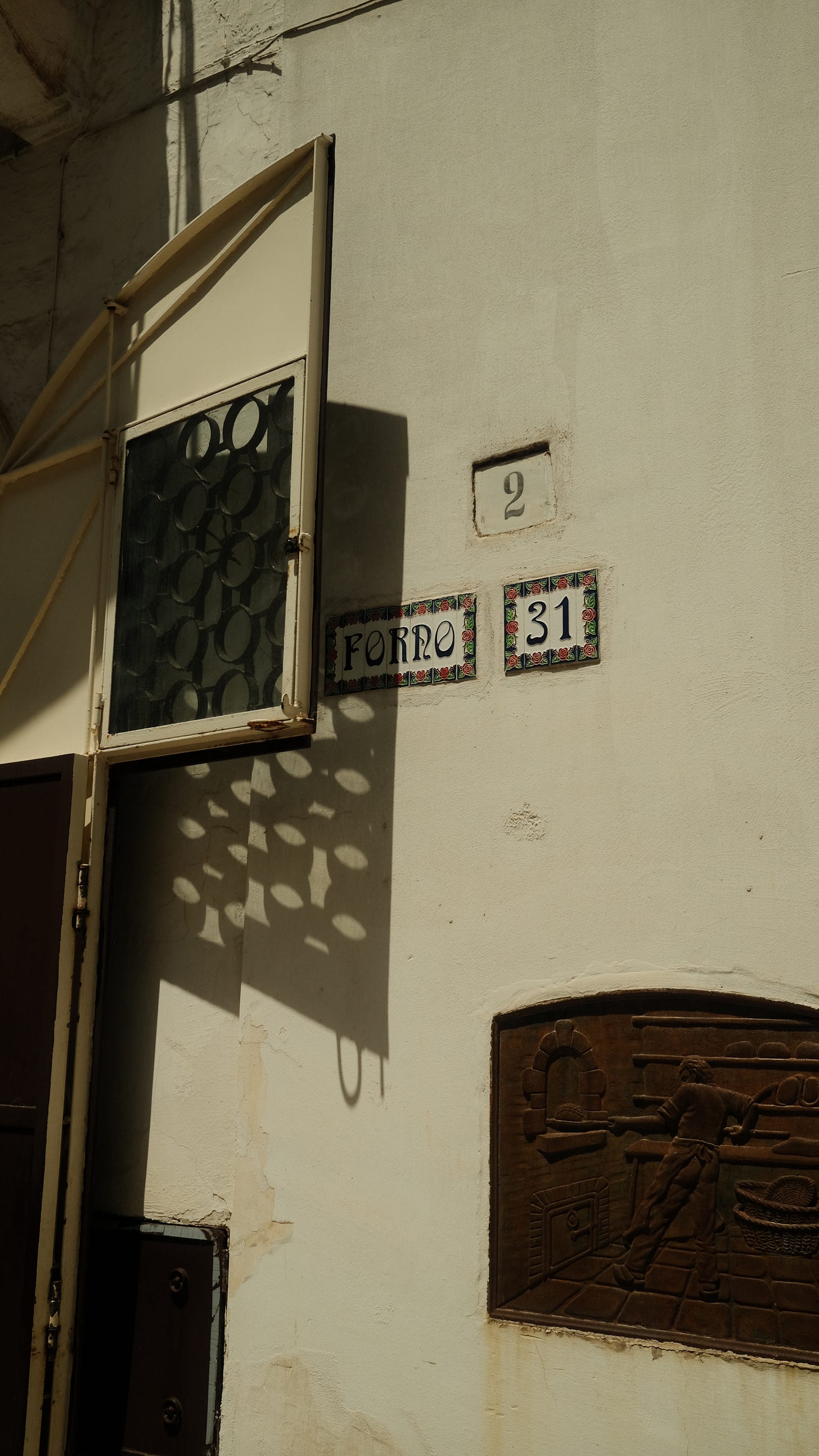
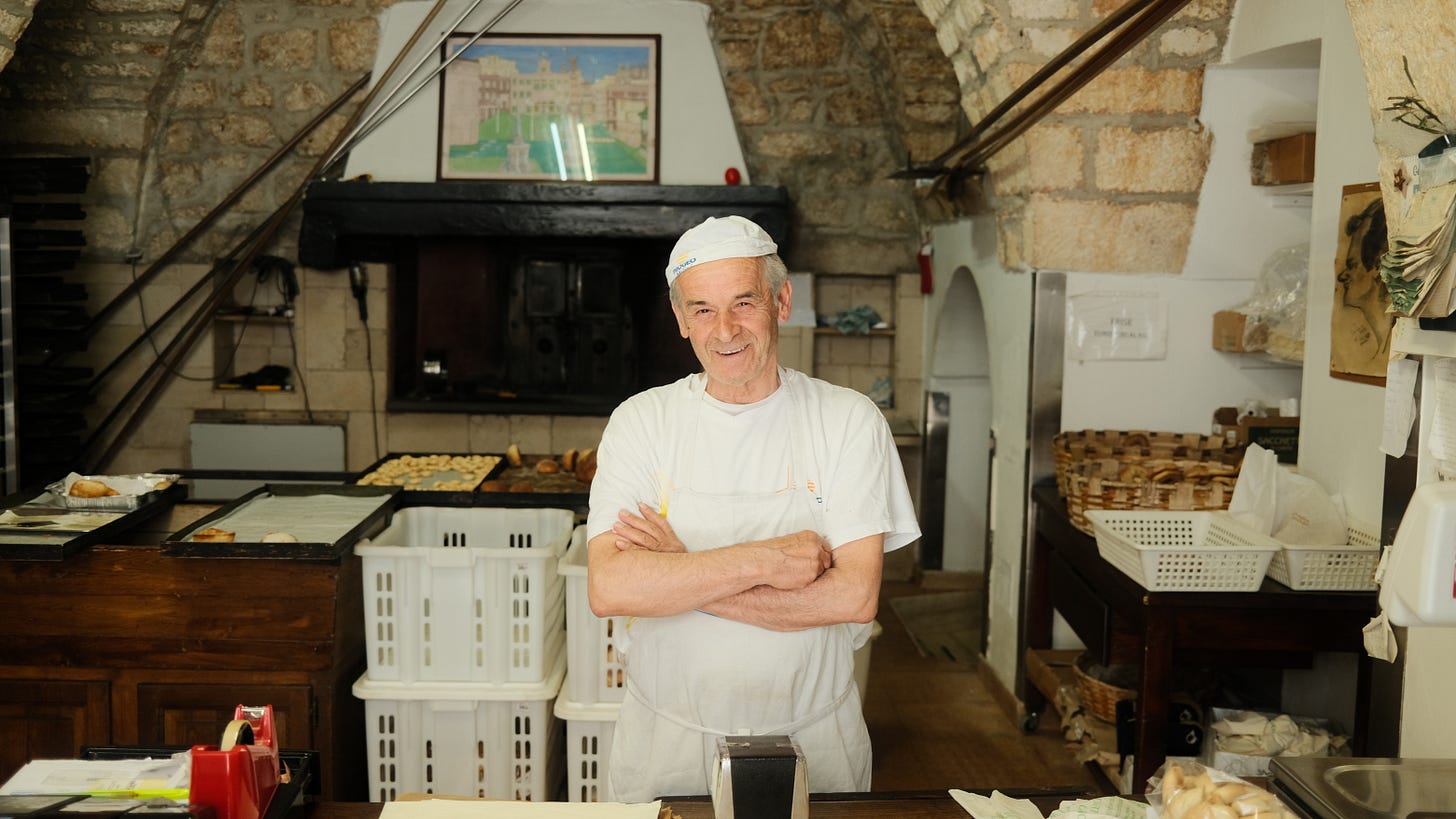


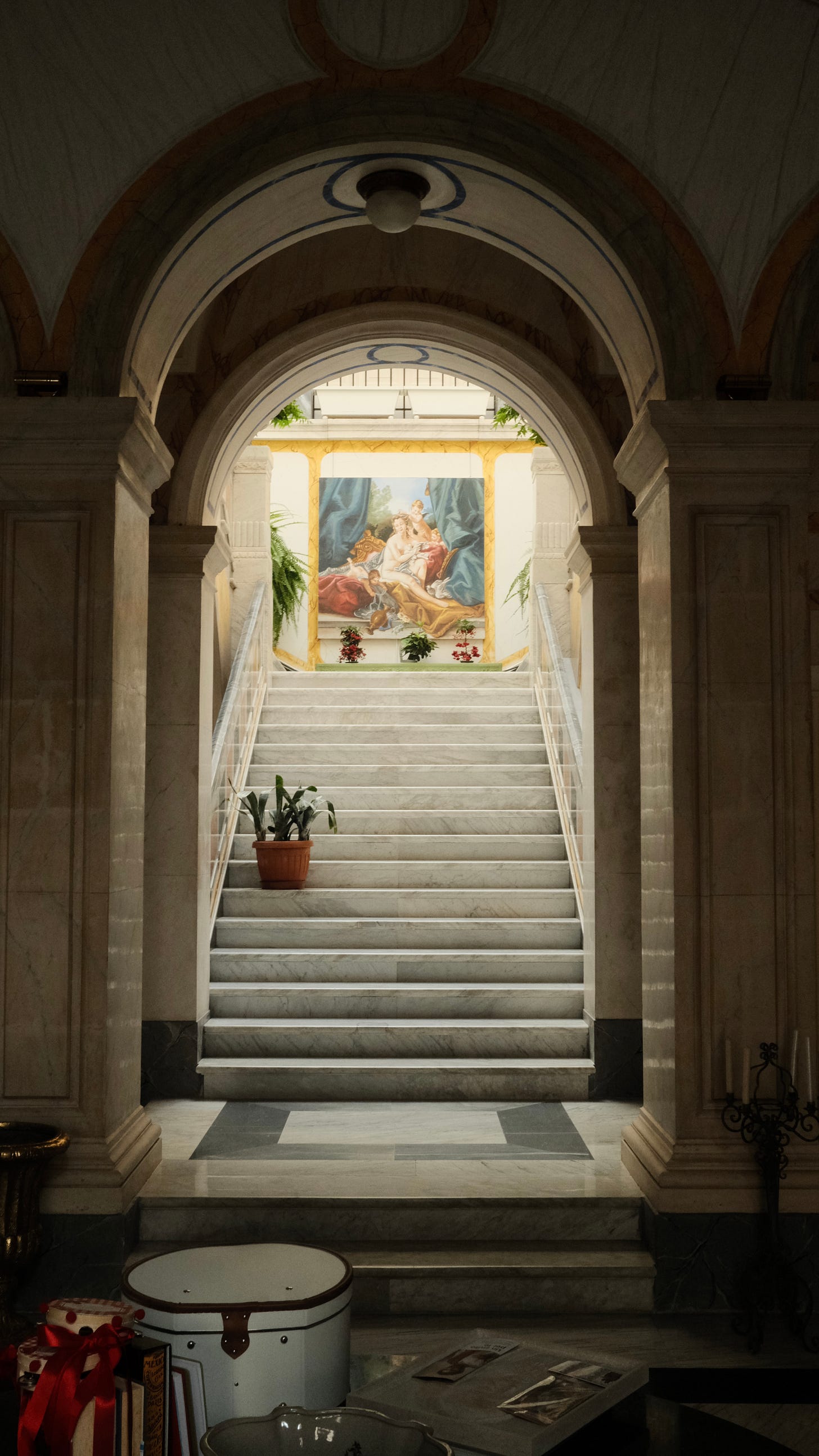

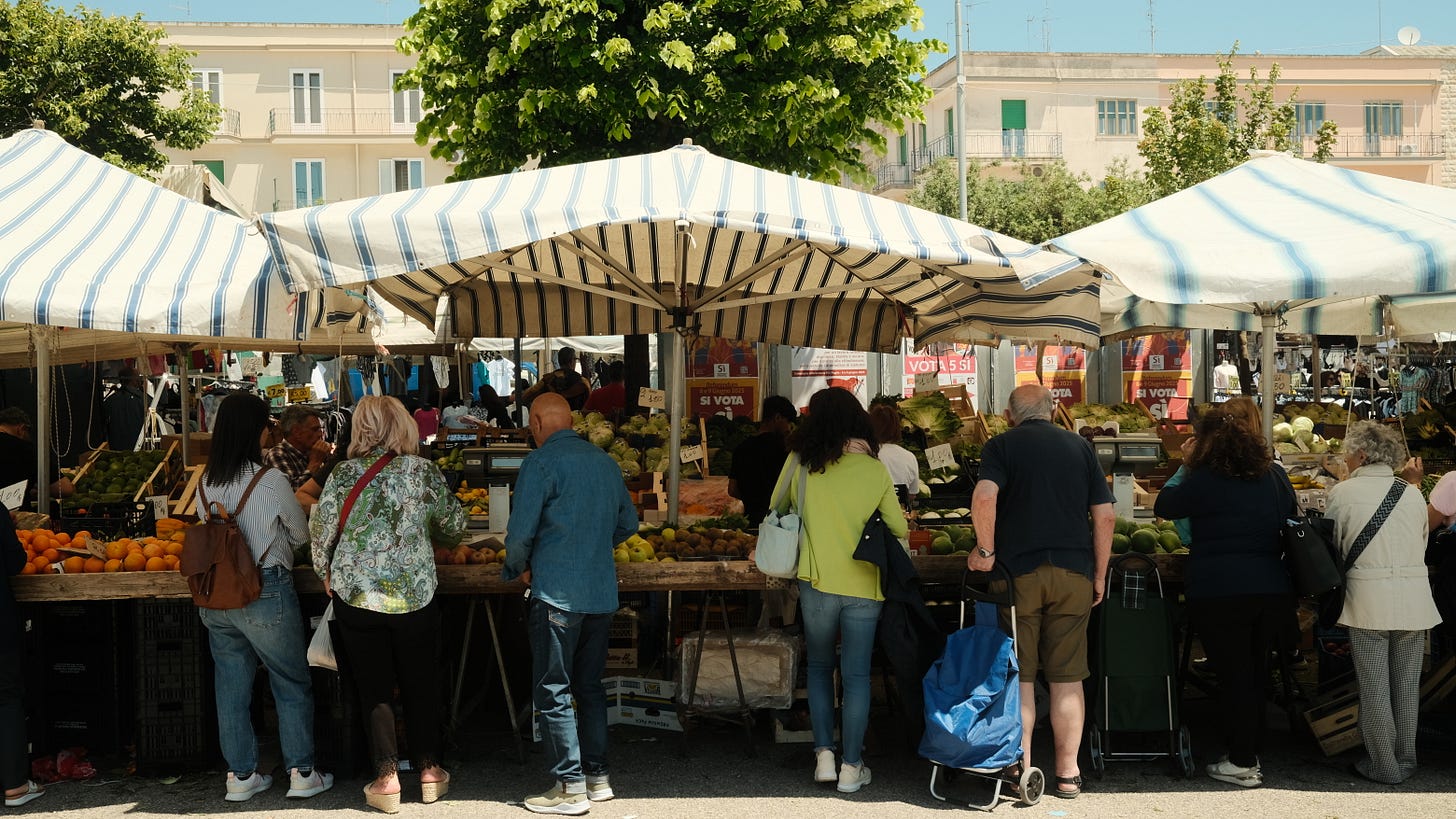
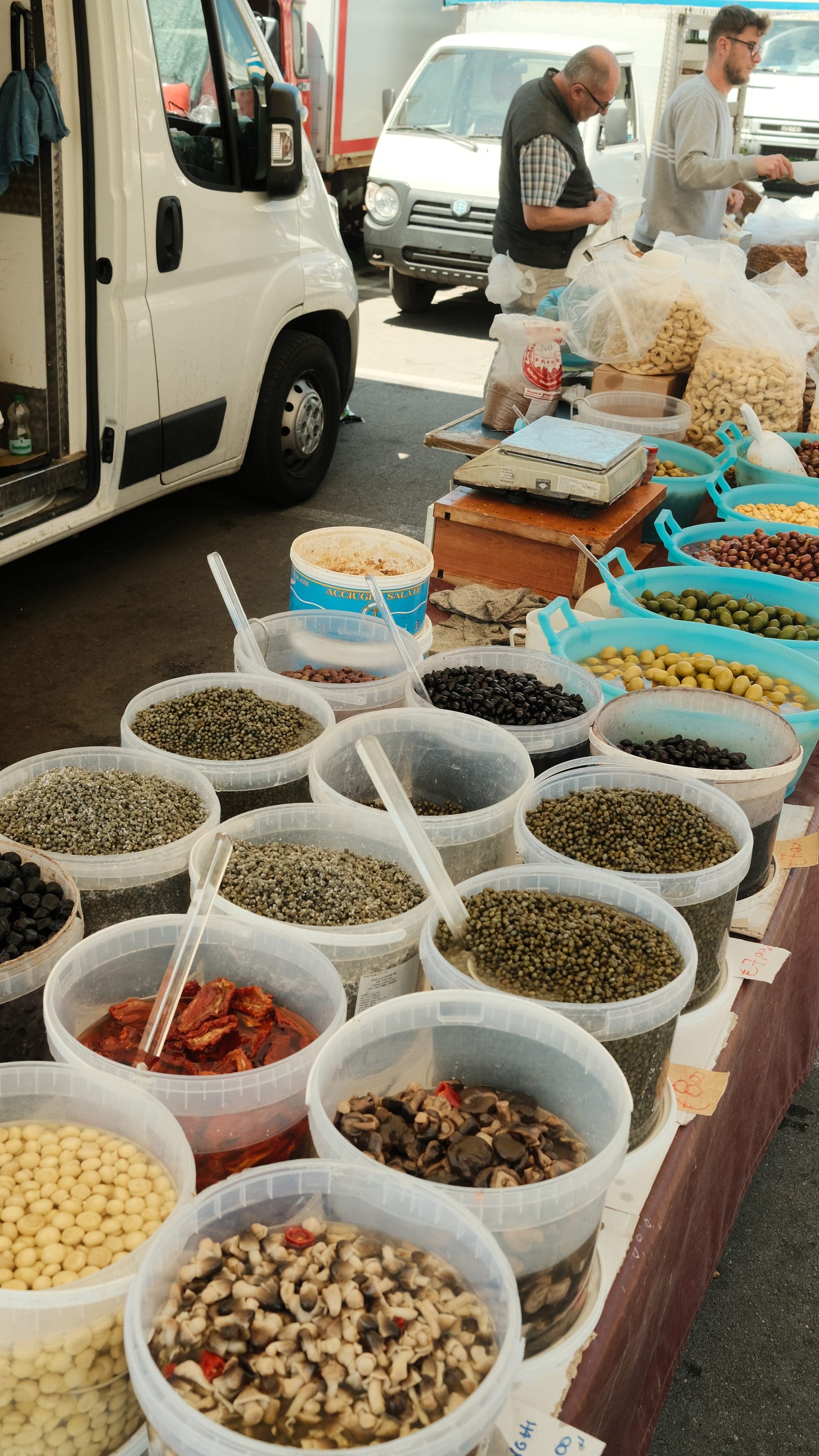






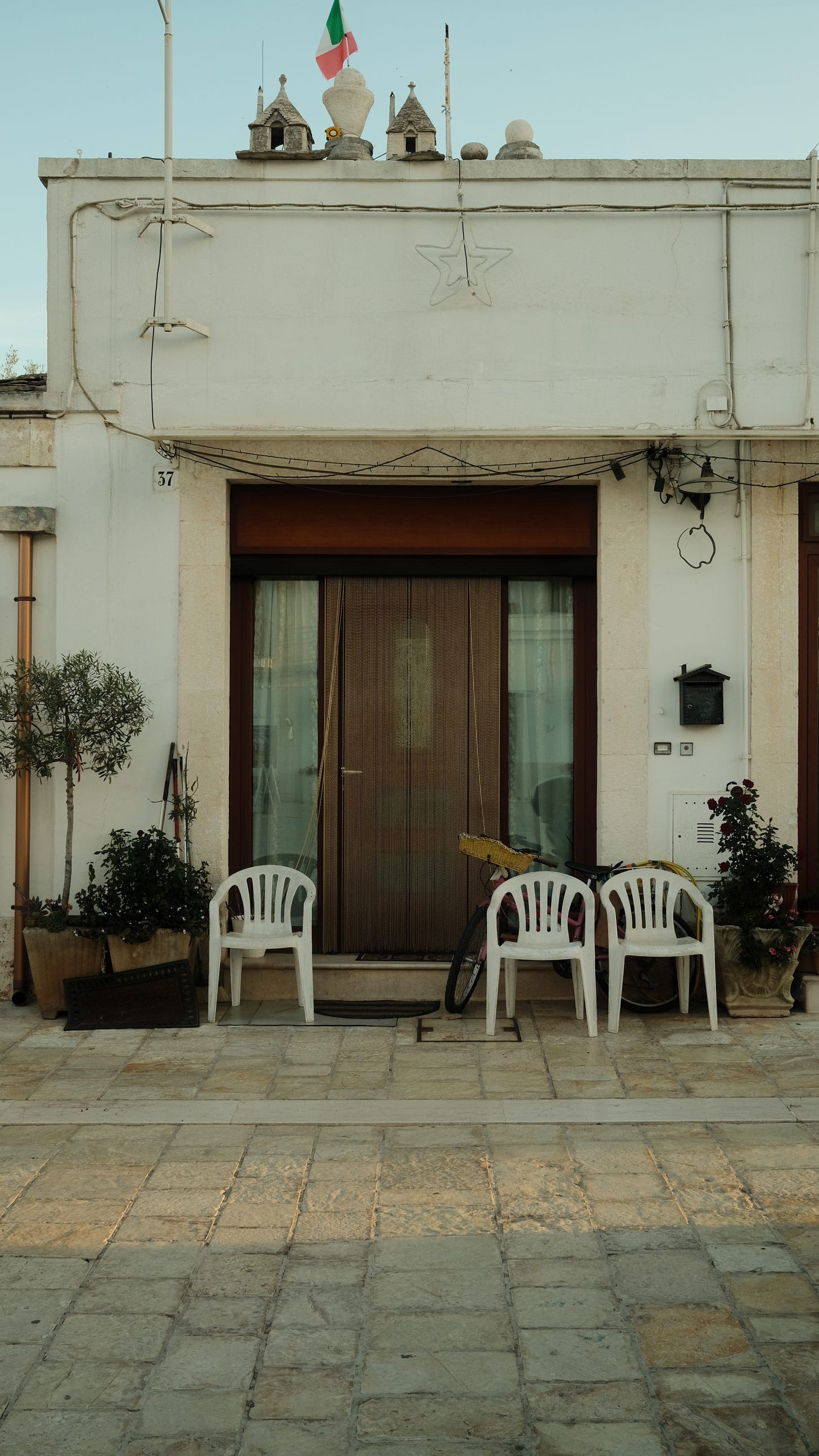
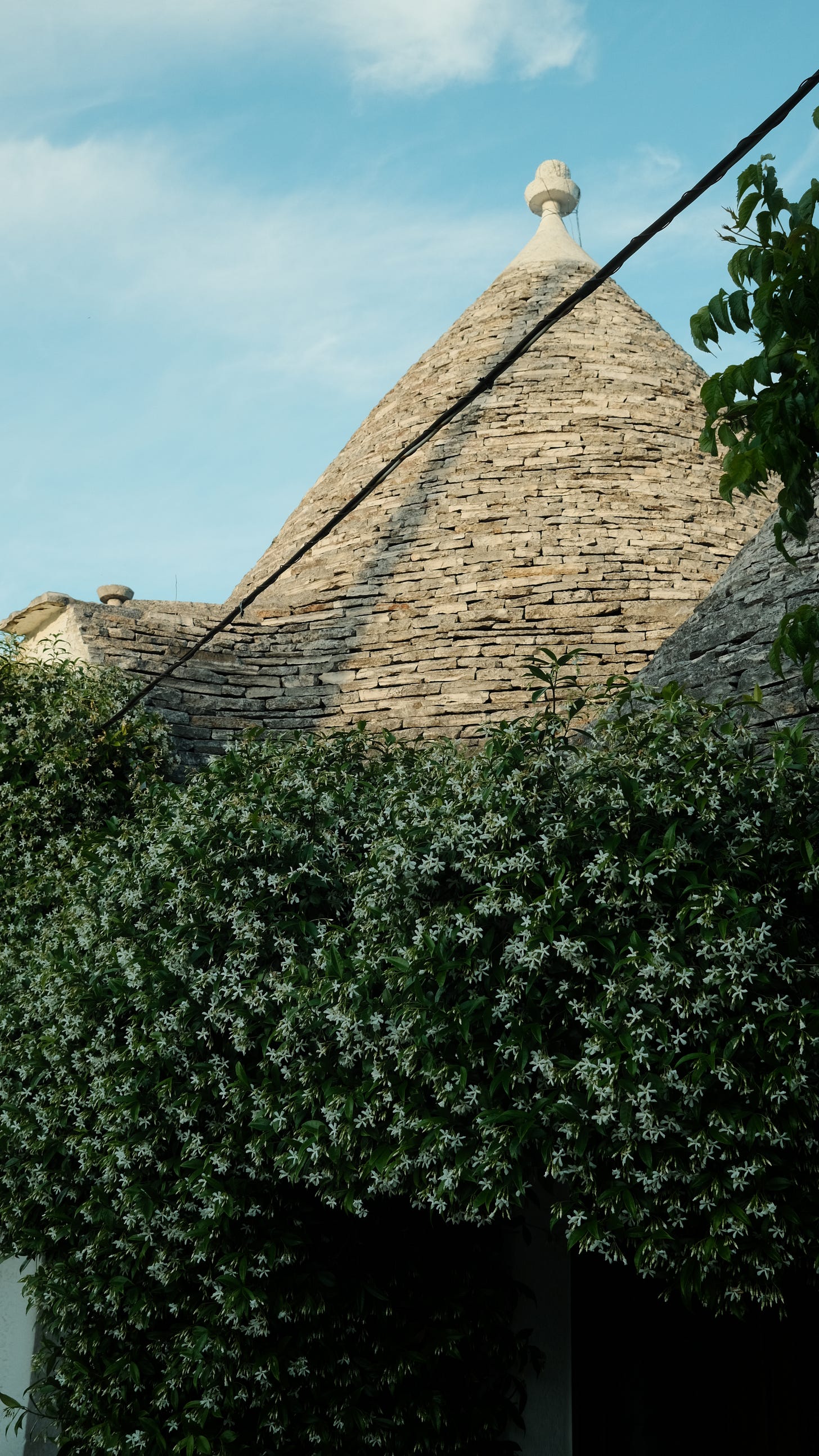
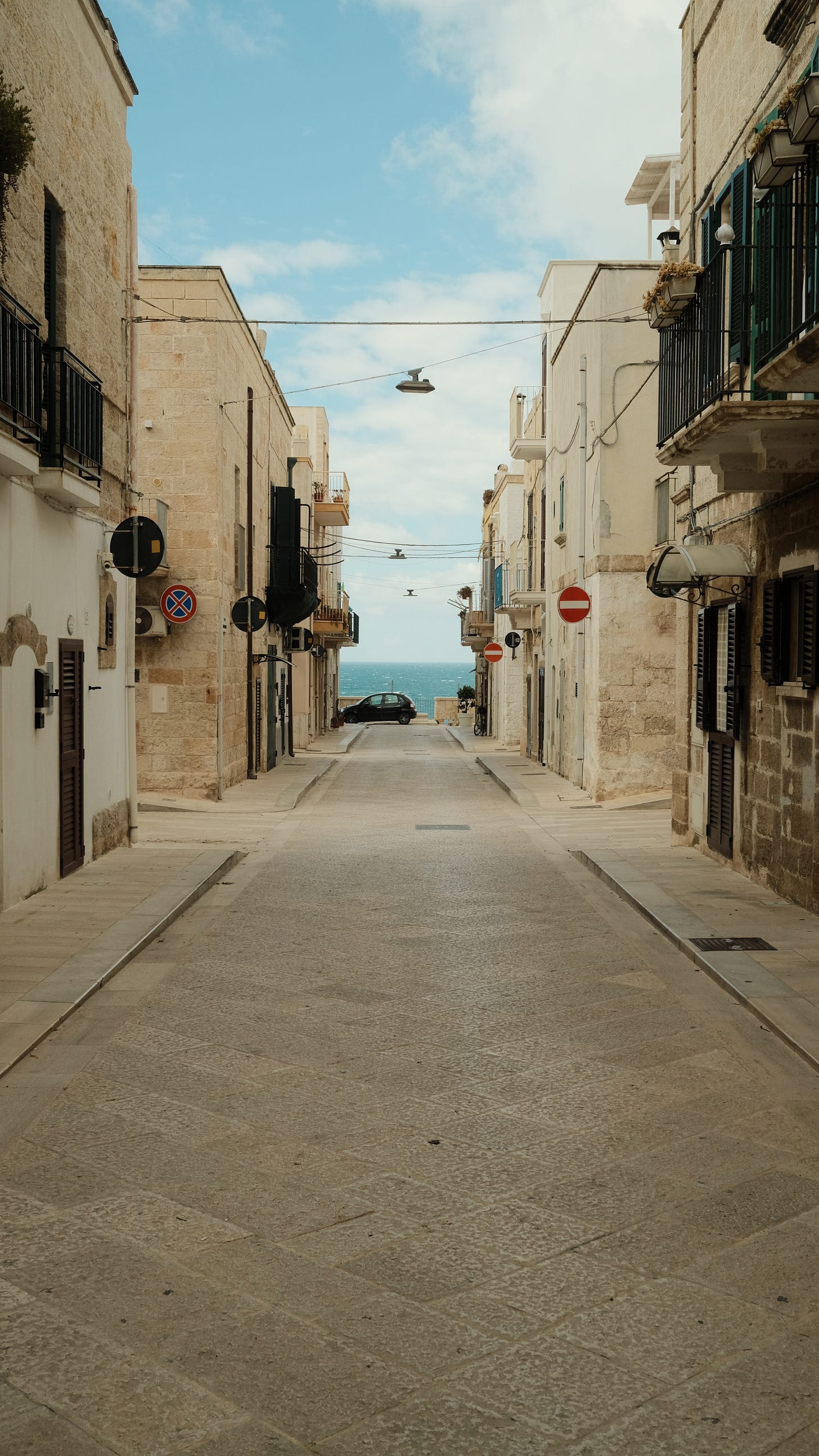
photos are so good
the bird photo is gorgeous! this looks unbelievable i wanna go to puglia